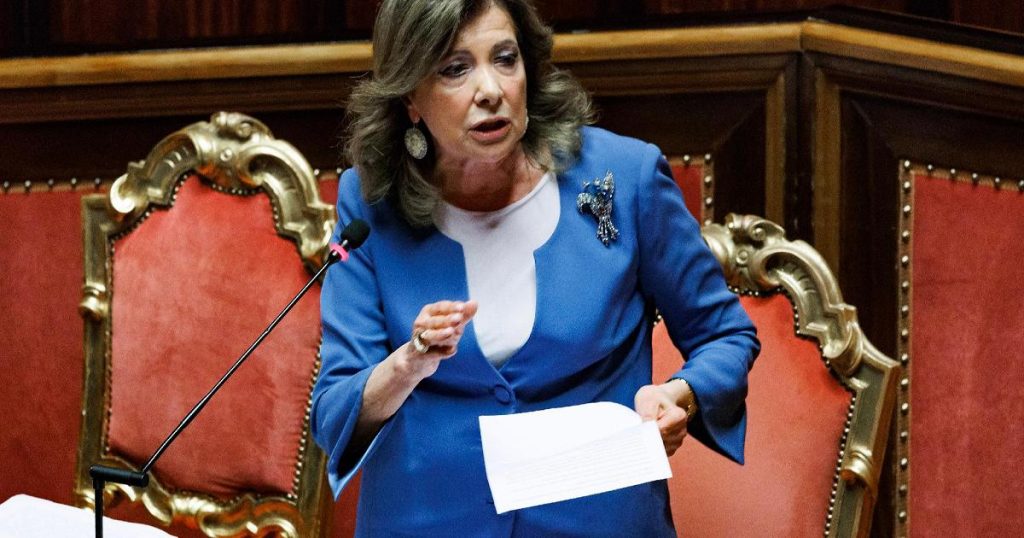Yesterday, a heated debate in the Senate Chamber, before the start of the votes, brought to light the reform that should lead to the direct election of the Head of Government, the so-called prime ministerial reform. The Minister for Reforms, Elisabetta Casellati, reiterated in her speech that there are no risks of imbalance between institutional powers. She emphasized the different roles of the President of the Republic and the Prime Minister within the constitutional framework. The President of the Republic has powers to safeguard constitutional values and represent national unity, deriving legitimacy from the Constitution’s values. The President’s prerogatives have not been affected, but instead expanded with the appointment of ministers, revocation of ministers, and the sole power to sign significant acts previously shared with the government. In contrast, the Prime Minister has political guidance powers.
The opposition parties have begun a fierce battle by submitting approximately 3,000 amendments after the general discussion. The leaders of the PD, M5s, and Verdi-Sinistra parties, Francesco Boccia, Stefano Patuanelli, and Peppe De Cristofaro, have vowed to intervene on every amendment, ensuring strong opposition. The rejection of the motion on the approval of the electoral law before the premiership was also a significant development in the Senate. The motion proposed by Italy Viva’s group aimed to ensure the approval of the electoral law before the constitutional reform’s implementation, especially before a potential referendum under Article 138 of the Constitution. This was despite negative feedback from the rapporteur Alberto Balboni (FdI) and the government. The rejection of the motion highlights the ongoing debates and disagreements within the Senate regarding the sequence of reforms and their impact on the electoral process.
The rejection of the motion and ongoing discussions reflect the deep divide among political parties regarding the reform process in Italy. The proposed reform for the direct election of the Head of Government has sparked intense debates and strong opposition, leading to thousands of amendments being presented for consideration. The differing interpretations of the roles and powers of the President of the Republic and the Prime Minister have become central points of contention in the discussions within the Senate. The efforts to ensure the approval of the electoral law before the constitutional reform also underscore the importance of providing clarity and transparency in the reform process to align with the principles of democracy and inclusive decision-making.
The tensions and challenges faced in the Senate regarding the reform process indicate the complexities and intricacies involved in making significant constitutional changes. The debates and discussions surrounding the reform for the direct election of the Head of Government highlight the diverse perspectives and interests at play within the political landscape. The rejection of the motion and the commitment of opposition parties to intervene on every amendment demonstrate the determination to uphold their positions and influence the reform process. As the discussions continue and the reform moves forward, it is essential for all parties involved to engage in constructive dialogue and collaboration to address the concerns and uncertainties surrounding the proposed reforms and ensure a transparent and inclusive decision-making process.


